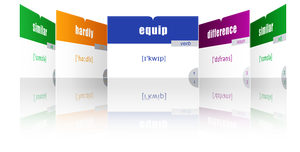Тест №17 по ОГЭ-2024. Английский язык. Трубанёва Н.Н. (Ответ)
- Подробности
- 3249

Test 17
|
29 |
Do you like watermelon? Most people would answer ‘yes’, as this sweet juicy fruit is very tasty. (sweet juicy fruit - сладкий сочный фрукт. Прилагательное, Словообразование в английском языке ) juice - сок |
JUICE |
|
30 |
We usually call watermelona fruit, although botanists disagree with this. They say it is a special kind of berry. Watermelon comes from Africa and there is evidence that it was grown by ancient Egyptians. (botanists disagree with this - ботаники несогласны с этим. Наречие, Словообразование в английском языке ) agree - соглашаться |
AGREE |
|
31 |
They considered watermelon a very valuable food — its seeds were found in the tomb of the Pharaoh Tutankhamun. (very valuable food - очень ценная еда. Прилагательное, Словообразование в английском языке ) value - стоимость |
VALUE |
|
32 |
Information about watermelon can be found in old manuscripts and books, including the Bible. (Information about watermelon - Информация о арбузе. Существительное, Словообразование в английском языке ) science - наука |
INFORM |
|
33 |
Watermelon is really a very healthy food, rich in vitamins A and C. (is really a very healthy food - это действительно очень полезная еда. Наречие, Словообразование в английском языке ) real - настоящий |
REAL |
|
34 |
There are a lot of recipes for cooking watermelon but most people prefer it fresh, as a separate dish or as a wonderful addition to fruit salad. (a wonderful addition - замечательная добавка. Прилагательное, Словообразование в английском языке ) wonder - удивляться |
WONDER |




 Как правильно изучать английский язык по карточкам (статьи)
Как правильно изучать английский язык по карточкам (статьи)